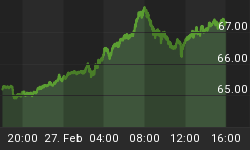Last year pretty much devastated the restaurant industry, with estimates that more than 110,000 were permanently closed and 5.5 million jobs were lost. As states are easing restrictions on dining and things are slowly returning to normal, the industry now faces a different problem: They can’t find workers.
Many pre-pandemic restaurant industry workers opted to rely on unemployment benefits. Others went back to school, and still others left the industry altogether in search of something more pandemic-weathering.
This could, however, prove to be a boon for job seekers.
The worker shortage, not only in the food industry, might help current workers in the industry to get their $15 minimum wage, more than double the current federal minimum wage of $7.25.
The $15 minimum wage is a sore point. Labor activists and the public say this higher minimum wage is needed to provide a livable income. Businesses, of course, disagree, and the smaller ones say they can’t afford the wage increase and that it will eventually force them to eliminate jobs.
The government is unable to find bipartisan support for it, but they might not have to in the end. Market forces might dictate this for everyone.
Since taking office, President Joe Biden has pushed several times for raising the minimum wage to $15 per hour. He initially proposed it as part of the COVID-19 relief bill that was passed in March, but the White House dropped the wage proposal after the Senate ruled against it.
More recently, during his first address before a joint session of Congress in late April, President Biden renewed his bid and called for the passage of the PRO Act and for a $15 federal minimum wage.
"No one, no one working 40 hours a week should live below the poverty line… The guys and women on Wall Street, Wall Street didn’t build this country. The middle class built this country. And unions build the middle class," Biden told Congress.
Also, last month President Biden signed an executive order that raises the minimum wage for federal contractors and tipped employees working on government contracts to $15 an hour from existing $10.
Some major corporations like Amazon, Target and Costco have already enacted $15 minimum wage or more, while others have made plans to gradually increase wages in the coming years.
A $15./hour minimum wage is not an idea coined by President Biden. It actually dates back to 2012, when New York City fast-food workers walked off the job to demand higher pay.
Since then, the FightFor$15 movement has gained momentum.
The $15 minimum wage is already rolling out in many states and some forty cities. Currently, 29 states and D.C. have minimum wages above the federal minimum wage.
According to the US Bureau of Statistics, last year there were about one million hourly workers earning wages that were at or below the minimum. However, there are many more who earn just above minimum wage.
The Congressional Budget Office reported in February that 17 million workers would see wages increased. The report also states that the wage increase would reduce the number of Americans in poverty by 0.9 million workers.
















